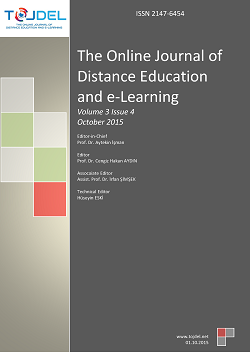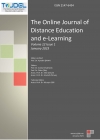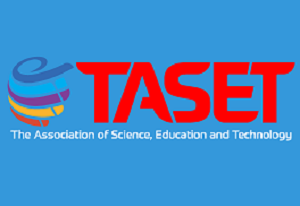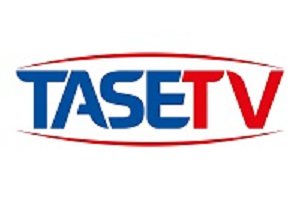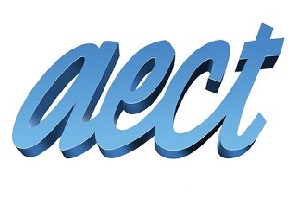TOJDEL - Volume 3 - Issue 4 - October 2015
 AN EXAMINATION OF THE ONLINE VERSUS F2F ACADEMIC PERFORMANCE OF NON-TRADITIONAL UNDERGRADUATE BUSINESS SCHOOL STUDENTS
AN EXAMINATION OF THE ONLINE VERSUS F2F ACADEMIC PERFORMANCE OF NON-TRADITIONAL UNDERGRADUATE BUSINESS SCHOOL STUDENTS Dr. Rochelle Parks-Yancy,Dr. Delonia Cooley
Abstract: Online collegiate education offers students access to higher education, irrespective of their proximity to the university. Non-traditional student populations benefit from online education because they often work full time and are parents of young children. They can still earn a degree, despite their work and familial obligations. However, the results are mixed regarding the academic performance of students in online courses, relative to courses that are taught face to face (F2F). These students are generally not online education-savvy. They require extensive orientation to online learning norms and processes, and need large quantities of professor-student online interactions. Failure of university administrators and professors to recognize their needs and/or to institutionalize the responses to their needs can negatively affect students’ academic performance in online courses, relative to F2F courses. This study compares the academic performance of non-traditional undergraduate business majors in online and F2F courses. The authors also discuss students’ knowledge of online learning norms and the course platform prior to enrolling in online courses and how this can impact their course performance.
 BEST PRACTICES FOR TEACHING EFFECTIVE SOCIAL WORK WRITING SKILLS ONLINE
BEST PRACTICES FOR TEACHING EFFECTIVE SOCIAL WORK WRITING SKILLS ONLINE Patricia Desrosiers, W. Jay Gabbard, Emily Funk
Abstract: A number of research studies have documented problematic issues with student writing in undergraduate and graduate programs in the United States. Some discipline-specific writing courses have been developed to address these deficiencies, including some all online offerings. This paper critically synthesizes the latest available research on best practices in teaching effective writing in an online format, with a focus on social work graduate students. However, the teaching modalities examined herein can be applied in online writing courses in all human services professions and at all levels.
 DISTANCE EDUCATION: FROM DEEP DISAPPOINTMENT TO NEW OPTIMISM
DISTANCE EDUCATION: FROM DEEP DISAPPOINTMENT TO NEW OPTIMISM Tarik ATAN
Abstract: The demand for higher education continues to rise. The vast expansion of undergraduate and graduate numbers over the same period indicated that a university diploma is accepted as a good value and a key to better life even at the face of the remorseless rise in the cost of getting it. On the other hand, a university education is a good preparation for working life and citizenship in the 21st century. The knowledge requirements are more pressing as the world gets more complicated and economies are transforming to knowledge economies. Furthermore, it also is in the interests of the societies and nations to invest in their people because returns to them are enormous. . So the economy needs it, people needs it, societies and governments needs it. There is demand from all sides. But unfortunately this demand is not fulfilled. Approximately 40% of total high school graduates do not make it to universities for different reasons. Within this paradigm, introduction of web based distance education opportunities raised great hopes. Indeed, an appropriately constructed system could make miracles by overcoming physical obstructions as well as financial hardships. But the retention rates among the pioneering US Universities distance learning programs created a huge disappointment. Underneath this failure lies the fact that learning is a “social experience”. Overlooking this phenomenon is a sure remedy for failure. This paper focuses on this aspect of distance learning, and investigates hybrid approaches, flip-class applications and newest web systems incorporated to existing online applications.
 EFFECTS OF WEB READING, ONLINE ANIMATION MODELS, ONLINE FLASH MODELS, AND ONLINE YOUTUBE LEARNING IN DIGESTIVE SYSTEM
EFFECTS OF WEB READING, ONLINE ANIMATION MODELS, ONLINE FLASH MODELS, AND ONLINE YOUTUBE LEARNING IN DIGESTIVE SYSTEM Ananta Kumar Jena
Abstract: In this virtual learning era, the teachers are directly applying the web reading, online animation models, online flash models, and online YouTube learning in teaching of science. The subjects (n=52) of an Indian elementary schools were randomly assigned to traditional treatment (n=10), online web reading (n=12), online animation (10), online flash model (n=11) and online YouTube learning (n=9) in digestive system. Pre intervention and post intervention data collected and analyzed by t test, ANOVA and Scheff Multiple Comparison techniques. It is resulted that web reading, online animation models, online flash models, and online YouTube learning has significant effect over traditional approach. This inductive research work could be applied for specific observation for broader generalization.
 Online Learning Method in Hue University's College Of Education With Credit System In Vietnam: Actual Situation And Solutions To Improve Efficiency
Online Learning Method in Hue University's College Of Education With Credit System In Vietnam: Actual Situation And Solutions To Improve Efficiency LeThanhHieu, LeThiBichDao
Abstract: From analysis of some reality and conditions in teaching and learning in the credit training system of informatics subjects in Hue Unniversity's College of Education which the author taught online via the website www.elearning.dhsphue.edu.vn, the author has suggested elearning organizational model with support of internet and web technology for two objects: students for none Specific Purposes (NSP) learning “basic information technology subjects” and IT students for Specific Purposes (ITSP) learning “software engineering subjects”. From statistics of the results and feedbacks from the learners of the kinds of training, the author has suggested elearning organizational model appropriate with the credit training systems in Hue Unniversity's College of Education.
 PODCAST ACCEPTANCE TO ENHANCE LEARNING SCIENCE VOCABULARY AMONG IRANIAN ELEMENTARY STUDENTS
PODCAST ACCEPTANCE TO ENHANCE LEARNING SCIENCE VOCABULARY AMONG IRANIAN ELEMENTARY STUDENTS Maryam Farahmand Khanghah, Siti Hajar Binti Halili
Abstract: Although using technology tools is not new trend in education, still unavailability of some IT infrastructures may led to less use of educational tools and rollback to traditional teaching style. On the other hand access to cheap technology devices and internet provided a better chance for teachers and students to have wider access to educational resources. However podcasting is not a new brand technology but it has a potential to enhance teaching and learning process. This paper prepared an overview report of previous studies conducted on using podcast in learning and investigated challenges and difficulties of using podcast in teaching and learning science vocabulary among Iranian primary students.
 RECIPROCAL PEER OBSERVATION: A FRAMEWORK FOR DEVELOPING TEACHING AND LEARNING SKILLS IN TERTIARY ENABLING SCIENCE COURSES
RECIPROCAL PEER OBSERVATION: A FRAMEWORK FOR DEVELOPING TEACHING AND LEARNING SKILLS IN TERTIARY ENABLING SCIENCE COURSES Dr. Farha Sattar, Dr. Muhammad Nawaz
Abstract: Reciprocal review is a multi-dimensional activity which involves colleagues, students and an in-depth understanding of teaching and learning theoretical framework. It can be adopted to teach ourselves about effective teaching and learning practices. This paper describes the process used in a tertiary enabling maths course, which resulted in an increased emphasis on reflective teaching, enhanced student participation and introduction of integrated communication skills. Issues involved in teaching and learning tertiary enabling maths are identified and solutions to the identified issues are presented. This article demonstrates that reciprocal collegial review can be an important component of ongoing professional development for teaching and learning in tertiary enabling mathematics.
 SECONDARY STUDENTS’ PERCEPTIONS OF INFORMATION, COMMUNICATION AND TECHNOLOGY (ICT) USE IN PROMOTING SELFDIRECTED LEARNING IN MALAYSIA
SECONDARY STUDENTS’ PERCEPTIONS OF INFORMATION, COMMUNICATION AND TECHNOLOGY (ICT) USE IN PROMOTING SELFDIRECTED LEARNING IN MALAYSIA Nailul Asfar, Zamzami Zainuddin
Abstract: The purpose of this study was to identify secondary students’ perceptions on the use of Information, Communication and Technology (ICT) in promoting students’ self-directed learning in Malaysia. Survey design was used to gather quantitative data through the questionnaires. 100 students were chosen randomly as the samples from two private Secondary Schools in Selangor, Malaysia. SPSS V22.0 was used to analyze descriptive and inferential statistic. The findings showed that the use of ICT among students in Malaysia was familiar and it had promoted a high level of readiness in selfdirected learning and established students’ interactions with ICT, peers, and teacher. The findings also reported that there was a relationship between gender and the use of ICT and self-directed learning, the students from the urban areas also tended to be more self-directed in their learning compared to students from the rural areas. Further study should analyze the level of self-directed learning among secondary school students in the rural areas in Malaysia. The disparity between urban and rural areas in terms of facility and infrastructure is one important factor that needs to be studied.
 THE VALUE OF SOCIAL NETWORKING IN ICT. A NEW ZEALAND PERSPECTIVE
THE VALUE OF SOCIAL NETWORKING IN ICT. A NEW ZEALAND PERSPECTIVE Vicki-Lee TYACKE
Abstract: In 2010 The Neilson Media Group (2010) found that 70% of New Zealanders surveyed had a Facebook persona. With this level of engagement with the online social networking space why are New Zealand educators not consistently utilizing Facebook as an integral e-learning tool for students to discuss course content and collaborate on their assessments? Particularly as, international research has found that social network sites encourage students to collaborate with each other, as well as adding value to, and enhancing the contextualization of, their knowledge. While this article acknowledges the ongoing criticism associated with the use of social networking spaces as an elearning tool, the focus is to analyse the positive aspects of the use of Facebook in Information and Communication Technology (ICT) education to engage with our target audiences. From this position this article has identified educators need to be involved with ICT policy development and review to ensure policies are robust, value based, and focused on growing responsible digital citizens to encourage this engagement. Furthermore, to achieve these values based policies there needs to be a focus for New Zealand educators producing scholarly outputs that capture a New Zealand cultural perspective in relation to the incentives, and barriers, of integrating social networking into the classroom.

